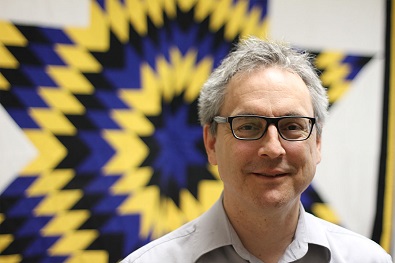Robert Innes, graduate chair of Indigenous studies. Photo used with permission, courtesy news.usask.ca
This fall, the University of Saskatchewan is getting three PhD students dedicated to researching Indigenous peoples.
Students had only been accepted to take their Indigenous Studies PhD on a case-by-case basis in the past, but now an official program has been formed and its students get started in the fall.
Drawing from his own studies years ago, assistant professor Robert Innes says there is so much to learn about Indigenous history and also about Indigenous people and culture in contemporary terms.
“There are so many areas that there has either been very little research or no research on. So when I was doing my research on Aboriginal veterans, at that point there was relatively little written on Aboriginal veterans from a scholarly perspective,” he told MBC.
The three new students will be researching the meaning behind petroglyphs (rock carvings), the relationship between Metis people and place, and how Indigenous knowledge can inform government and business.
Innes said the new program isn’t just about what the students learn, it’s about how they help Indigenize the university campus.
“We’re at this time where Indigenous issues are forefront and there’s lots of talk about Indigenous people in the media and in the academy. We think having the growing graduate program, and our PhD program in particular, will really help to invigorate the kinds of discussions that take place on campus in terms of Indigenous people and Indigenizing the academy in particular,” he said.
Innes recalls his undergraduate studies in Toronto where students had to go out of their way to find Indigenous-focused classes and professors, and sees universities now growing their Indigenous studies graduate and PhD programming. For example, he said the U of S had about four or five faculty a few years ago and that number has now grown to 11 or 12.
Still, the U of S is joining only a handful of North American universities that have an PhD-level Indigenous Studies program.
The University Council approved the new PhD program in January, and its inaugural students will have the next five years to complete their doctorates.
